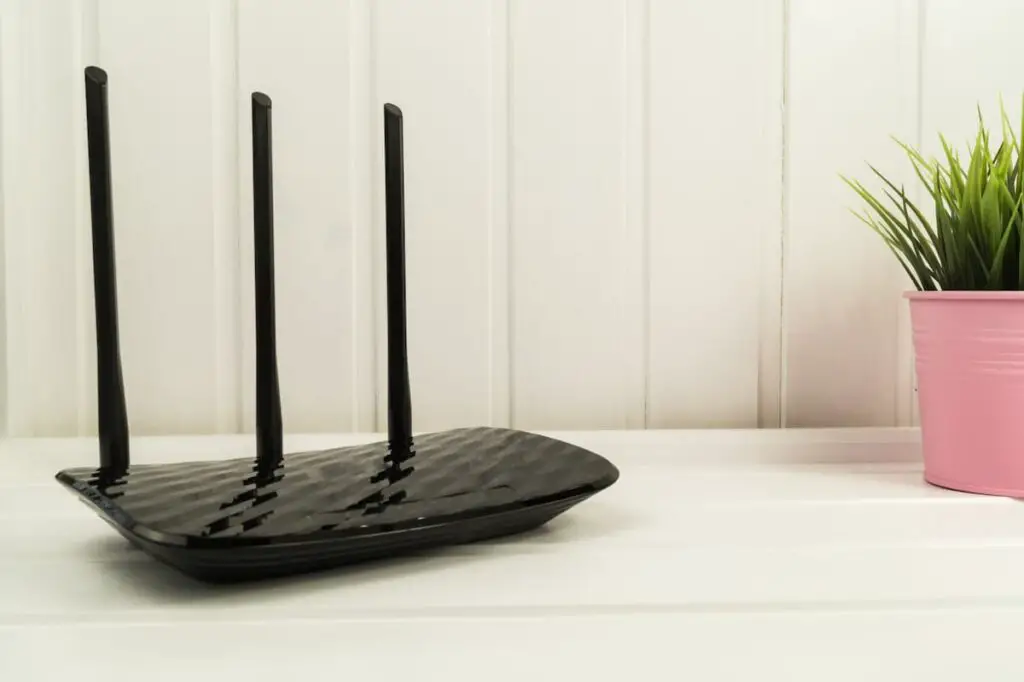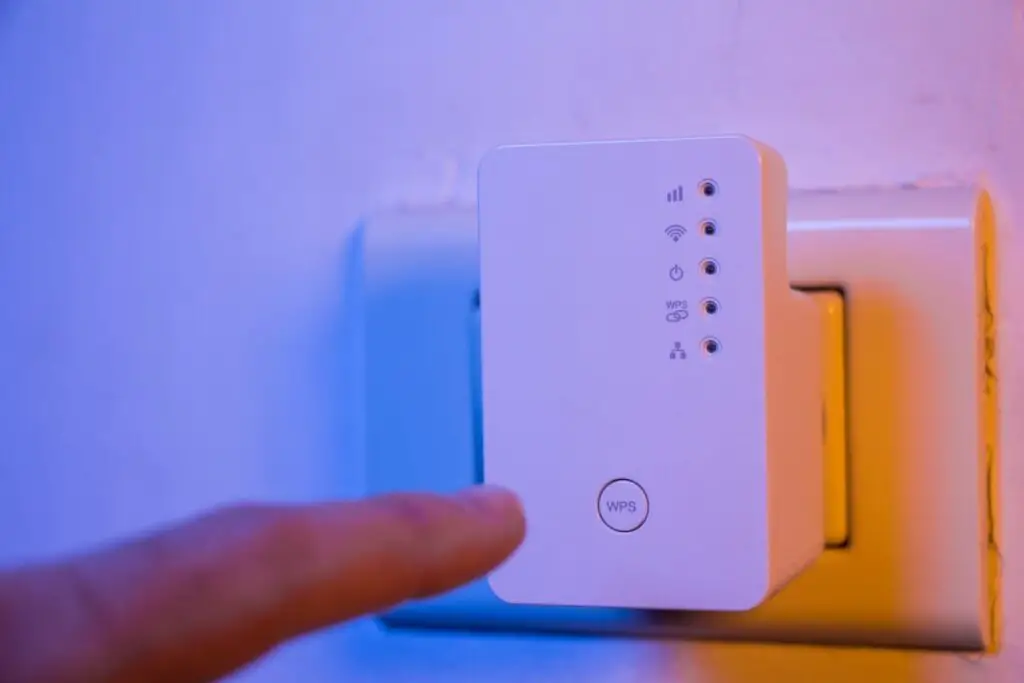As an Amazon Associate, we earn from qualifying purchases. We may also earn commissions if you purchase products from other retailers after clicking on a link from our site.
When rain falls, it can often be a refreshing sight; the wet droplets cascade down, leaving a clean smell in the air, almost as if the world is being refreshed. But like most weather patterns, rain can also bring about negative effects – including potential interference with wireless signals. So, does rain affect your WiFi?
Rain can affect WiFi. The moisture absorbs or scatters the wireless signals, resulting in slower internet speeds or even loss of connection. However, installing a high-quality WiFi router and using a proper network setup can help minimize the impact of rain on your WiFi connection.
This blog post will explore the effects of rain on WiFi and how to troubleshoot any issues. I’ll also share some tips for keeping your WiFi connection strong during bad weather. Read on to learn more!

Effects of Rain on WiFi Connectivity
A rainy day can be a mood booster, but it can also dampen your WiFi signal strength. Here’s a rundown of how rain can hurt your WiFi:
The Rainwater Absorbs 2.4 GHz Signals
WiFi routers typically operate on the 2.4 GHz frequency, and rain can actually absorb these signals. So while your router may still be functioning, the signal cannot reach its destination – leading to a weak or dropped connection.
The effects are most pronounced when a lot of water is present, such as during a downpour. And while light rain generally doesn’t affect WiFi as much, it can still lead to slower internet speeds if there are other obstacles, such as trees or buildings.
Rainwater Can Scatter Wi-Fi Signals
Rain can also cause the scattering of wireless signals, leading to slower internet speeds or a spotty connection. The scattering is particularly common in heavy rains or storms, as the raindrops act as tiny mirrors that reflect and disperse the signals.
Besides, interference from other electronic devices can also worsen the scattering effects of rain on WiFi.
WiFi Routers Can Get Damaged by Rainwater
Not only can rain affect the wireless signals, but it can also damage the WiFi router itself. Water and electricity don’t mix, so if your router is exposed to rain or moisture, it may malfunction or even break down completely.
Here are a few ways rain can damage your router:
- Rainwater can seep into the circuitry and cause corrosion.
- The router may short-circuit if it gets wet.
- The moisture can damage the antenna, leading to weak signals.

Weather Conditions That May Impact WiFi
Rain isn’t the only factor that can lead to signal attenuation or interference – other weather conditions can also impact WiFi.
Here are a few common examples:
Wind Can Cause Branches To Sway, Blocking Signals
One potential downside of living near trees is that their branches can block or weaken WiFi signals. And during windy weather, the branches may sway even more – leading to even worse signal interference.
This can be frustrating if you rely on WiFi for work or school. It can also be a major inconvenience if there’s no other way to connect to the internet.
In addition, strong winds can also damage the antenna on your WiFi router, leading to a weaker signal.
Thunderstorms Can Cause Electrical Interference
Thunderstorms are unpredictable and can bring about damaging weather conditions, including strong winds and heavy rains. But they can also cause electrical interference that affects WiFi signals.
The lightning in a thunderstorm produces electromagnetic waves, which can disrupt the wireless frequency and lead to a spotty or dropped connection.
Snow Can Weaken Signals
Like rain, snow can also absorb or scatter WiFi signals – leading to slower internet speeds or a weak connection. And heavy snowfall can also damage router components installed outdoors. For example, if the antenna is covered in snow, it can’t effectively transmit signals.
Similarly, ice can also hurt WiFi signals if it builds up on the antenna or other components. The moisture may also damage the router if it’s not properly protected.
How To Minimize the Effects of Rain on WiFi
While rain and other weather conditions can affect your WiFi connection, there are steps you can take to minimize their impact. Here are a few tips:
Place Your Router in a Protected Location
The best solution to prevent rain damage is to keep your router safe and dry by placing it indoors or in a covered area. Here are a few options:
- Mount the router on an interior wall instead of an outside wall.
- Place the router in a waterproof housing or enclosure. For instance, you can use this LeMotech Junction Box from Amazon.com. It’s IP67 waterproof and can protect your router from rain, dust, and other outdoor elements.
- Install the router under a covered porch or patio.
Invest in Weatherproof WiFi Equipment
If you need to keep your router outdoors, investing in weatherproof equipment can provide added protection against rain and other weather conditions. That way, you can minimize the risk of damage and maintain a strong WiFi connection.
Here are some quick ways to check if a router or antenna is weatherproof:
- Look for the IP67 rating: This means the equipment is protected against dust and can withstand being submerged in water up to 1 meter (3.28 feet) deep for 30 minutes.
- Check for a waterproof or weatherproof label on the product: This indicates the equipment can withstand rain and other weather conditions.
- Ask the manufacturer about weatherproof features: They should be able to provide more information on the equipment’s durability against rain and other weather elements.
Regularly Check and Maintain Your Router
In addition to protecting your router from rain, regularly checking and maintaining it can also prevent other types of damage and improve its performance.
Here are a few maintenance tips:
- Inspect the router for any physical damage, such as cracks or loose connections.
- Clear away any debris or dust on the router and its components.
- Update the router’s firmware to improve its performance and security.
- Reposition or adjust the antenna for a stronger signal. For instance, you can try changing the angle or direction of the antenna.
Here’s an excellent YouTube video guide from Lab Rats on how to check and maintain your router:
Ultimately, while rain may affect your WiFi connection, taking these precautions can help minimize any potential interference. And if you experience constant or recurring issues with your WiFi, consider consulting your internet service provider for further assistance.
How Do I Fix My WiFi After It Rains?

To fix your WiFi after it rains, try resetting the router and repositioning the antenna for a stronger signal. To reset it, turn off the power, wait a few minutes, and turn it back on. You can also try updating the router’s firmware and clearing away any debris or dust on it.
Here’s how to update the firmware:
- Log in to the router’s settings page, typically through a web browser. You can find the login information in the router’s manual or by contacting your internet service provider.
- Look for a firmware update option and follow the on-screen instructions.
Note: If there’s no option to update the firmware, contact the manufacturer for assistance.
How Can I Reinforce My WiFi Signal?
You can reinforce your WiFi signal by investing in a stronger router and positioning it in a central location. Additionally, using a mesh network or WiFi extender can also help amplify the signal to reach farther distances.
If you have a large home or a multi-level building, consider setting up multiple access points to ensure reliable WiFi coverage throughout the space. However, as Louisiana State University states, adding more access points can cause interference, so consider consulting a professional for assistance with setting it up.
If rain can affect wifi signals, one might ask if it can affect other communication signals. For example, can rain delay flights due to these effects or other related factors? Check out my article for more information. [Does Rain Delay Flights?]
Conclusion
It’s no secret that rain can affect WiFi signals. But with the right precautions, you can minimize any potential interference and maintain a strong connection. Some of the ways to do that include:
- Updating your router’s firmware.
- Clearing away debris or dust on the router.
- Adjusting the antenna for a stronger signal.
- Upgrading your router.
If you experience constant or recurring issues with your WiFi, it may be worth consulting your internet service provider for further assistance.
